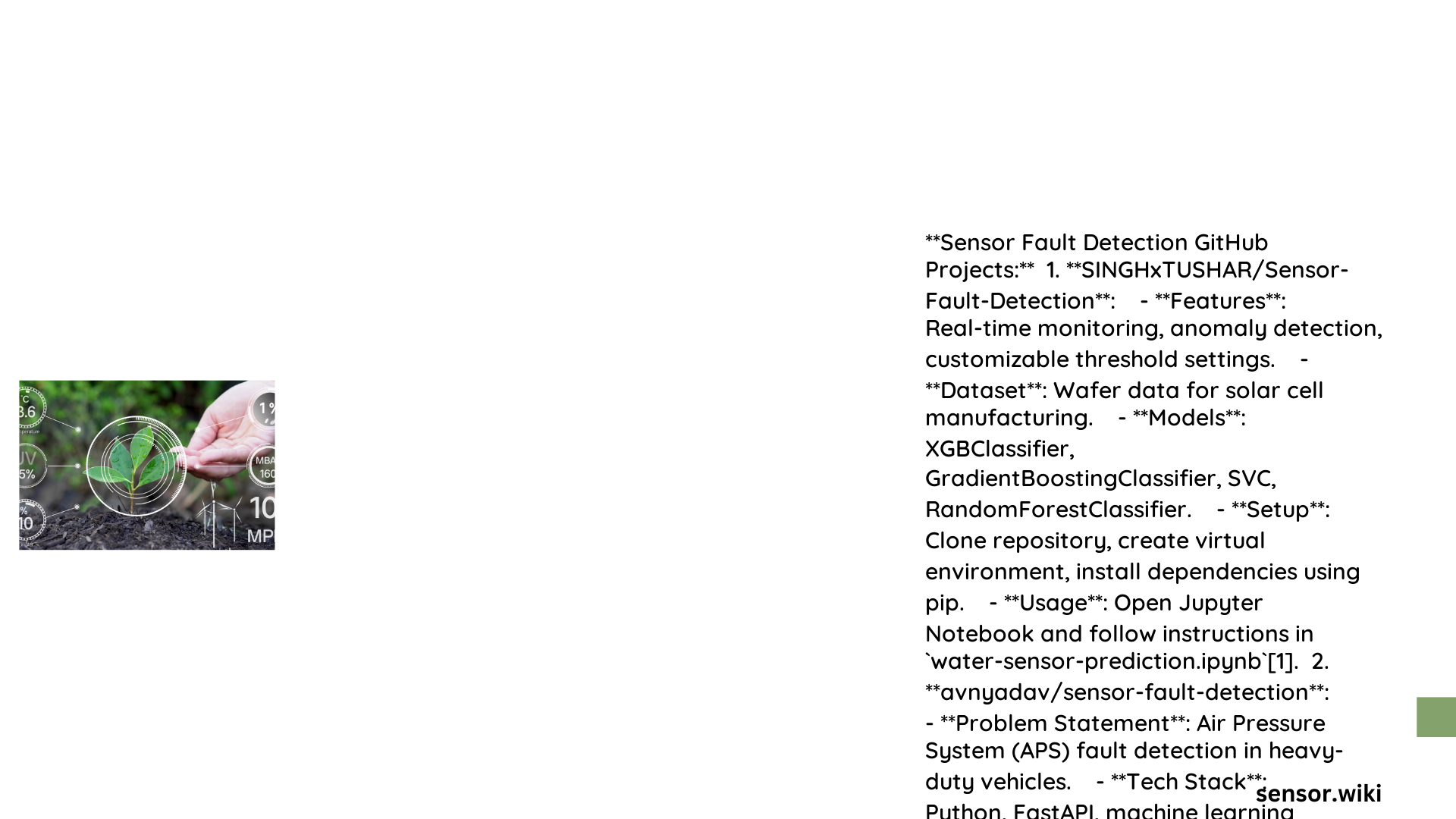Sensor fault detection on GitHub represents a critical technological frontier where advanced machine learning algorithms and innovative data processing techniques converge to solve complex industrial challenges. Researchers and engineers are leveraging open-source repositories to develop sophisticated systems that can predict, identify, and mitigate sensor failures across diverse domains like automotive, photovoltaic, and manufacturing industries. These GitHub projects demonstrate cutting-edge approaches to minimizing operational risks, reducing maintenance costs, and enhancing overall system reliability through intelligent fault detection methodologies.
What Are the Top Sensor Fault Detection GitHub Repositories?
Air Pressure System (APS) Sensor Fault Detection Repositories
| Repository | Key Features | Primary Tools |
|---|---|---|
| avnyadav/sensor-fault-detection | Binary classification for APS failures | Python, FastAPI, Docker |
| Bhardwaj-Saurabh/Sensor_Fault_Detection_Scania | Scania dataset analysis | Scikit-learn, Flask |
| zub3rrr/sensor-fault-detection | Kafka-based data processing | Kafka, MongoDB |
What Algorithms Drive Sensor Fault Detection?
Sensor fault detection GitHub repositories typically employ multiple machine learning algorithms:
- Classification Algorithms
- XGBClassifier
- GradientBoostingClassifier
- Support Vector Classifier (SVC)
-
RandomForestClassifier
-
Data Processing Techniques
- Real-time streaming with Kafka
- MongoDB data storage
- Advanced feature engineering
How Do Researchers Approach Sensor Fault Detection?
Researchers utilize comprehensive strategies to develop robust fault detection systems:
- Data Collection: Gathering high-quality sensor data from various sources
- Preprocessing: Cleaning and normalizing sensor measurements
- Feature Engineering: Extracting meaningful characteristics from raw data
- Model Training: Developing predictive models with high accuracy
- Deployment: Implementing scalable solutions using cloud infrastructure
What Challenges Do Sensor Fault Detection Projects Address?

Technical Challenges
- Data Reliability
- Handling noisy sensor measurements
-
Managing incomplete or inconsistent data streams
-
Model Accuracy
- Minimizing false positive/negative predictions
-
Developing generalizable machine learning models
-
Real-Time Processing
- Implementing low-latency fault detection systems
- Ensuring continuous monitoring capabilities
What Tools Support Sensor Fault Detection?
Software Ecosystem
- Programming Languages: Python
- Machine Learning Libraries: Scikit-learn, XGBoost
- Web Frameworks: FastAPI, Flask
- Containerization: Docker
- Data Storage: MongoDB
- Cloud Platforms: AWS, Google Cloud
What Industries Benefit from Sensor Fault Detection?
- Automotive
- Air Pressure System monitoring
-
Predictive maintenance
-
Renewable Energy
- Wafer sensor analysis
-
Photovoltaic power generation
-
Manufacturing
- Equipment health monitoring
- Quality control systems
How Can Developers Get Started?
Recommended Steps
- Explore GitHub repositories
- Study existing implementation strategies
- Clone and experiment with sample projects
- Understand domain-specific requirements
- Develop custom fault detection solutions
Conclusion
Sensor fault detection on GitHub represents a dynamic and evolving field where open-source collaboration drives technological innovation. By leveraging advanced machine learning techniques and robust data processing frameworks, researchers continue to push the boundaries of predictive maintenance and system reliability.
